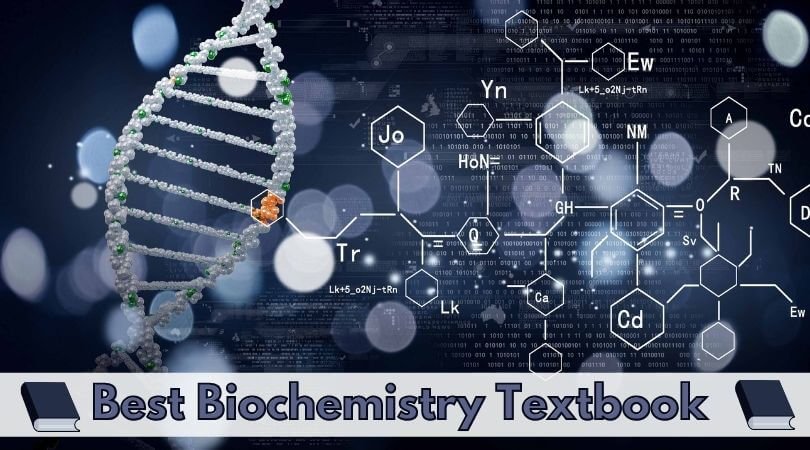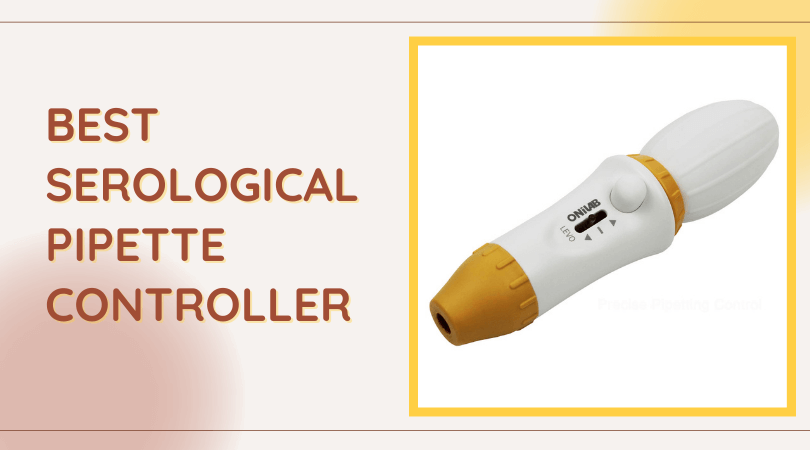Biochemistry, the study of biological processes at a cellular level, is the perfect mix of biology and chemistry. It is a fascinating branch of science that explores the chemistry of living things. Biochemistry is extremely important because it is actually the basis of life. At the molecular level, it is all chemistry!
Since the 19th century, when biochemistry was first recognized as a scientific discipline, the field has come very far. Today, it has applications in the medical field and in research. So, whether you are an undergraduate student, a medical student, or a professional in the science field, you will need to be updated about the latest advancements in biochemistry. You will also need to absorb as much information as possible.
This is where biochemistry textbooks come in. Many scholars have done an incredible job in putting together the most important concepts of biochemistry. You can choose from them based on your requirements.
| List of Top 5 Best Biochemistry Textbooks | |
|---|---|
| Best Overall | Biochemistry – Roger L. Miesfeld and Megan M. McEvoy |
| Best Bang for the Buck | Netter’s Essential Biochemistry (Netter Basic Science) – Peter Ronner PhD |
| Best for Beginners | Fundamentals of Biochemistry – Life at the Molecular Level (5th Edition) – Judith G. Voet, Donald Voet, and Charlotte W. Pratt |
| Best Biology Book Ever | Lehninger Principles of Biochemistry (7th Edition) – David L. Nelson and Michael M. Cox |
| Must have Biochemistry Book | Color Atlas of Biochemistry (3rd Edition) – Jan Koolman and Klaus-Heinrich Rohm |
Contents
Best biochemistry textbook
We have curated a few of the best biochemistry textbooks for you in this section. They come with in-depth information and can really be life-transforming.
1. Biochemistry – Roger L. Miesfeld and Megan M. McEvoy
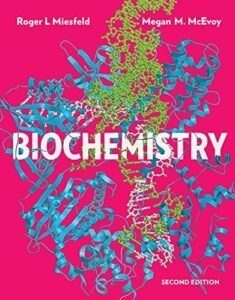
This is the latest edition of the popular textbook, Biochemistry, which you will find with almost every Biochemistry student. The authors have done a brilliant job in writing a very relatable yet rigorous textbook for students. Let’s take a closer look:
- It contains knowledge and expertise of more than 3 decades of experience in teaching.
- The textbook serves as a great guide for students as well as a teaching tool for teachers.
- It comes with readable explanations, in-depth content, and excellent graphics.
- The book also has relevant examples to help students understand why biochemistry is so crucial. It challenges their critical thinking and knowledge base.
- The second edition of this book comes with an eBook with animations, videos, 3D images, etc.
[i2pc show_title=”false” title=”Pros & Cons” show_button=”false” pros_title=”Pros” cons_title=”Cons” ][i2pros]Very nicely written Relatable content Good graphics [/i2pros][i2cons]A few explanations are difficult to understand [/i2cons][/i2pc]

2. Netter’s Essential Biochemistry (Netter Basic Science) – Peter Ronner PhD

This is quite a concise book that covers the basics of biochemistry really well. It focuses on clinical applications and is a very useful textbook for medical aspirants. Below are a few more details of the book:
- The book is embellished with many illustrations that make understanding biochemistry concepts easier.
- It has a reader-friendly, visual approach to make the subject digestible.
- Throughout the book, you will see a clinical perspective, which is of great help to medical students.
- Biochemical processes are illustrated through diagrams and drawings from Netter’s collection.
- At the end of each chapter, you have review questions and summaries to gain a better understanding of what you just learned.
[i2pc show_title=”false” title=”Pros & Cons” show_button=”false” pros_title=”Pros” cons_title=”Cons” ][i2pros]Very clear and concise Excellent artwork to explain biochemical processes [/i2pros][i2cons]Written specifically for medical students [/i2cons][/i2pc]

3. Fundamentals of Biochemistry – Life at the Molecular Level (5th Edition) – Judith G. Voet, Donald Voet, and Charlotte W. Pratt
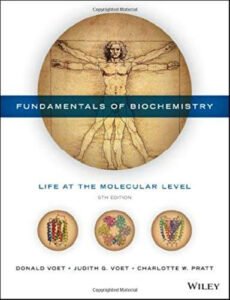
The Fundamentals of Biochemistry focuses on structural biology and bioinformatics among other things. The textbook is a great resource for medical students as well as undergrads who want to focus on these two branches of the subject. Please read on for more details:
- If you are looking for a solid foundation in biochemistry, this is the book to pick up without a doubt.
- It is deeply rooted in chemistry and helps students prepare for a bright future in the field.
- It provides complete information written clearly and concisely to cater to human disease.
- The 5th edition comes with quite a few upgrades including enhanced visuals and pedagogy that makes learning and understanding concepts easier than before.
- The graphics in this textbook are probably the best ones out there at the moment.
[i2pc show_title=”false” title=”Pros & Cons” show_button=”false” pros_title=”Pros” cons_title=”Cons” ][i2pros]Superb graphics Focus on human health and disease [/i2pros][i2cons]While the content of the book is great, the binding and quality is disappointing [/i2cons][/i2pc]

4. Lehninger Principles of Biochemistry (7th Edition) – David L. Nelson and Michael M. Cox
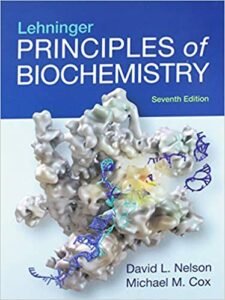
Lehninger Principles of Biochemistry is a bestseller for introductory biochemistry courses. It beautifully brings biology and chemistry together to give you complete clarity on the subject. Here are a few more details about the book:
- Clear writing is the biggest USP of this book along with careful explanations that make even difficult concepts easy to grasp.
- The book provides problem-solving support to help you navigate through the chapters.
- It is very insightful and delves deep into new techniques, ideas, and discoveries.
- The book includes many new findings and a lot of information along with extra discussions.
- It is a brilliant starting point for beginners who want to further their knowledge in biology and chemistry.
[i2pc show_title=”false” title=”Pros & Cons” show_button=”false” pros_title=”Pros” cons_title=”Cons” ][i2pros]Gives an excellent understanding of biochemistry Covers basics pretty well [/i2pros][i2cons]A few diagrams and illustrations are not continuous/complete [/i2cons][/i2pc]

5. Color Atlas of Biochemistry (3rd Edition) – Jan Koolman and Klaus-Heinrich Rohm
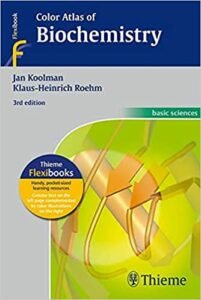
Learn about human biochemistry through visuals with the Color Atlas of Biochemistry. It demonstrates key concepts using detailed images. Read on for more details:
- The 3rd edition of Color Atlas of Biochemistry focuses on pathobiochemical aspects and clinical sciences. It is an excellent choice for exam preparation.
- The edition also has more detailed and expanded sections in a few chapters, specifically digestive systems, immune systems, transport processes, biochemistry of fatty tissue, motor proteins, blood clotting, etc.
- Many symbols are color-coded for easy comprehension.
- The book has computer graphics to make 3D representations and complex subject matters more tangible.
- It has a color thumb index to navigate through the book easily.
[i2pc show_title=”false” title=”Pros & Cons” show_button=”false” pros_title=”Pros” cons_title=”Cons” ][i2pros]Good writing with excellent graphics Good visual representation of key concepts [/i2pros][i2cons]Not for beginners – It only helps expand your knowledge in biochemistry [/i2cons][/i2pc]

Conclusion
You may have noted that our list contains textbooks that cater to beginners as well as intermediate learners. Depending on the type of pedagogy and learning you are looking at, you can pick any of these top biochemistry textbooks of 2021.
